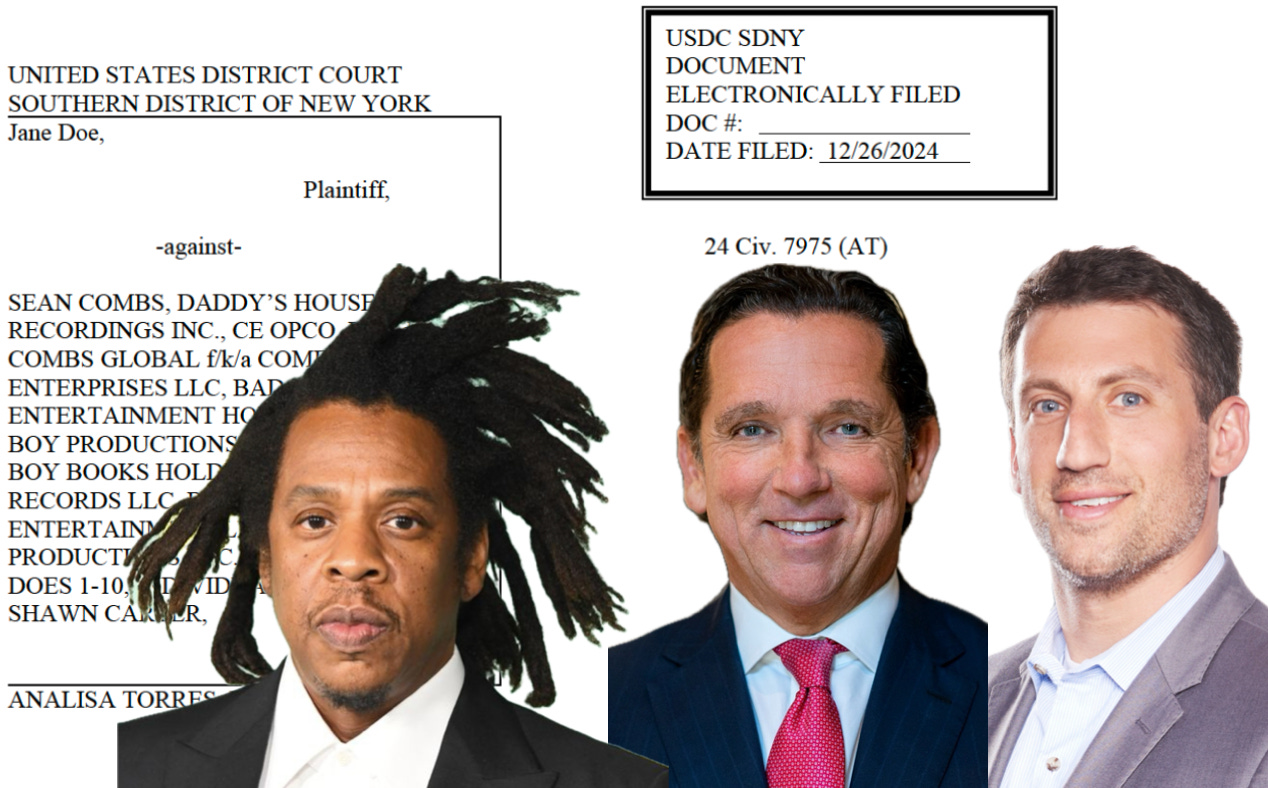Judge won't strike rape claim against Jay-Z, says plaintiff can proceed anonymously
U.S. District Judge Analisa Torres called attorney Alex Spiro's 'relentless filing of combative motions' 'a tactic unlikely to benefit his client.'
A judge on Thursday said the woman accusing Shawn “Jay-Z” Carter of raping her in 2000 can proceed anonymously “at least for this stage of the ligation,” and she said his lawyer’s “litany of letters and motions” wrongly attempt to “impugn the character” of plaintiff’s lawyer Tony Buzbee.
“Carter’s lawyer’s relentless fil…



